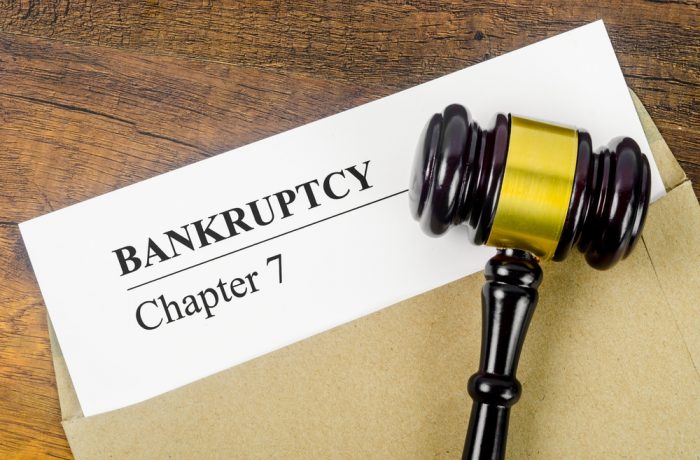By Brian Figeroux, Esq., the Law Firm of Figeroux & Associates
Facing overwhelming debt is a deeply personal and often frightening experience. Credit card bills, medical expenses, payday loans, or wage garnishments can leave you feeling trapped with no clear path forward. While many consumers delay seeking help due to stigma, confusion, or misinformation, one of the smartest and most empowering steps you can take is to schedule a consultation with a bankruptcy attorney.
This article explores the ideal timing for speaking with a bankruptcy lawyer, what documents to bring to your consultation, essential questions to ask, and why so-called “debt consolidation” solutions are often costly traps rather than genuine lifelines.
- When Is the Right Time to Speak With a Bankruptcy Attorney?
The best time to consult a bankruptcy attorney is not after your wages are garnished, your home is in foreclosure, or your car has been repossessed—but before these events occur.
Here are key indicators that you should speak with an attorney immediately:
- You’re using credit cards to cover basic living expenses.
- If you’re juggling balances and using new cards to pay off old ones, you may be headed for insolvency.
- Your minimum payments barely touch the principal.
- Interest-heavy payments signal a debt spiral that could last decades without relief.
- You’re behind on rent, mortgage, or utilities.
- Falling behind on essentials may lead to eviction, foreclosure, or service termination.
- You’re being harassed by debt collectors or served with lawsuits.
- Legal action, wage garnishments, or frozen bank accounts are signs of urgent need.
- You’ve suffered a financial shock—job loss, illness, divorce.
- Bankruptcy is designed to protect individuals from catastrophic life events that create unmanageable debt.
- You’re considering draining retirement funds to pay off debt.
- This is almost always a mistake; most retirement accounts are protected in bankruptcy.
You don’t have to be ready to file bankruptcy to seek a consultation. Speaking with an attorney can help you understand your legal options and alternatives, including whether bankruptcy is even necessary.
- What to Bring to Your Consultation
To make the most of your initial consultation, come prepared with documents that allow the attorney to assess your financial situation accurately. Essential items include:
- Pay stubs or proof of income (last 6 months)
- Tax returns (last 2 years)
- List of creditors (include balances, interest rates, and whether the account is in collections)
- Collection letters or lawsuits
- Bank statements (last 3–6 months)
- List of assets (real estate, vehicles, retirement accounts, etc.)
- Monthly household expenses (rent, food, utilities, insurance, etc.)
- Loan documents (car loans, mortgages, payday loans)
- Judgments, garnishment orders, or foreclosure notices
- Marital status and dependent information (relevant for means testing and exemptions)
Organizing this information beforehand helps the attorney determine what chapter of bankruptcy (Chapter 7 or Chapter 13) you may qualify for and whether it’s in your best interest to proceed.
III. Questions to Ask the Attorney
Your goal during the consultation is not just to be assessed, but to assess the attorney. Ask the following questions to make an informed decision:
- Do I qualify for Chapter 7 or Chapter 13 bankruptcy?
- Chapter 7 wipes out most unsecured debt, while Chapter 13 involves a repayment plan.
- Will I lose my home, car, or other property?
- Many filers retain their property through exemptions. Ask how local rules apply to you.
- What debts can and cannot be discharged?
- Student loans, child support, and recent tax debt may not be dischargeable.
- How will bankruptcy affect my credit score?
- It may drop initially, but bankruptcy can actually help rebuild credit faster than chronic delinquency.
- What is the total cost of filing, including legal fees and court costs?
- Be clear about what services are covered, especially in Chapter 13 cases.
- How long will the bankruptcy process take?
- Chapter 7 takes about 3–4 months; Chapter 13 lasts 3–5 years.
- Are there alternatives to bankruptcy I should consider?
- A competent attorney will advise you if bankruptcy is not necessary.
- What should I stop doing right now?
- This may include avoiding new debts, stopping large asset transfers, or ceasing payments to certain creditors.
Make sure the attorney is licensed, experienced in bankruptcy law, and transparent about their approach.
- Why Debt Consolidation Is Often a “No-No”
Debt consolidation is frequently marketed as an easy way to get out of debt, but it’s often a predatory solution that masks underlying financial issues and leaves consumers worse off.
- High Fees and Interest Rates
Most debt consolidation services charge excessive fees, often rolled into the new loan, and may lock you into high interest rates—sometimes higher than what you originally owed. - No Legal Protection From Creditors
Unlike bankruptcy, debt consolidation doesn’t protect you from lawsuits, garnishments, or repossessions. Creditors can still pursue legal action, and some may refuse to participate. - Doesn’t Eliminate Debt
Consolidation merely rearranges your debt, rather than reducing or eliminating it. You may end up paying more in the long run due to extended loan terms and compounding interest. - Negative Impact on Credit
If you default on your consolidation loan or drop out of a payment program, your credit score may plummet further, and the damage can be difficult to reverse. - Scams and Misrepresentations
Many so-called “debt relief” or “debt settlement” companies operate without regulation and make false promises of resolving your debt for “pennies on the dollar.” They often collect payments while doing nothing to stop your creditors from suing you. - May Delay True Solutions
Perhaps most damaging, debt consolidation can delay your decision to file bankruptcy until your situation is even more dire—leaving you with drained savings, lost assets, and years of financial distress.
In contrast, bankruptcy can provide immediate relief through an automatic stay, discharge qualifying debts, and offer a clear legal path toward rebuilding your financial life.
Conclusion
If you’re overwhelmed by debt, the worst thing you can do is wait. Consulting with a bankruptcy attorney early can help you avoid irreversible financial mistakes, preserve your assets, and regain control of your life. Come prepared with documents, ask smart questions, and be wary of debt consolidation offers that promise easy fixes but deliver long-term harm.
Bankruptcy is not a failure—it’s a legal tool designed to help honest people recover and thrive. Don’t let fear or stigma keep you from exploring your rights. A free or low-cost consultation can make all the difference between staying trapped in debt and finally breaking free.





